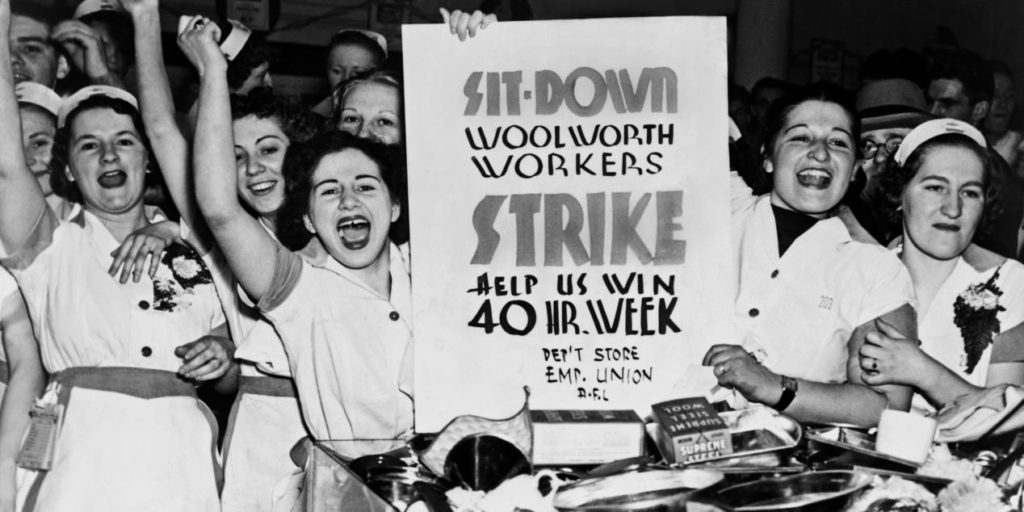The Problem of Nostalgia in Politics

My disdain for Matt Yglesias knows few bounds (the feeling is mutual, I may be the only person he’s ever blocked on Twitter). However, as much as it bugs me that he took the Slow Boring handle for his Substack because he misses the point Weber was making, I have to agree with his position that nostalgia is a real problem in politics. Nostalgia is a strictly reactionary political stance because it romanticized the past into something that didn’t exist. The past was never simpler. It was just different. The past wasn’t better. It was just different. That doesn’t mean the present is better either. This idea just isn’t a very useful way to think about politics. Sure, in some ways today is better than the past (you can be openly trans these days in a way that has never existed in this country before, except arguably for some of the southwestern tribes and that is complicated too. Speaking of which, the tribes have more political power today than they have since the white genocidal project began). And in some ways, parts of the past were better than today (the possibility of expanding labor rights instead of diminishing them). But part of what historians do, at least what I do, is complicating those narratives too. After all, the only way labor law could be expanded in the 30s was to exclude anything Black southerners did, reinforcing our racism.
In other words, we have to look at the past and the present in complex, interlocking ways that often defy political narratives. Getting caught in nostalgia on the other hand not only leads to right-wing violence, but the belief that we can’t make things better in the present because we aren’t as good as the past. The Mt. Rushmore version of left-wing politics, that we can’t make change because we look at the mountain and see KING and PARKS and CHAVEZ and DEBS and compare ourselves so negatively to them. Nostalgia on the left also takes attention way from the massive shortcomings of the past and simplifies what actually happened, creating easily targeted enemies today (Mexican immigrants, let’s say) that are not only not the problem, but move us away from the problem (spoiler alert: capitalism).
But I did want to link to this interesting response to Yglesias’ point in Jacobin from Dustin Guastella, who is a Teamsters officer in Philadelphia. I don’t really agree with rehabilitating the idea of nostalgia on the left, but it makes some good points and is a genuinely thoughtful argument. Here is the conclusion:
Whatever else nostalgia for the mid-century represents, it is hard to argue that popular affection for the period is merely aesthetic, subjective, or simply reactionary. There were aspects of society that were functioning better. For the Left, this is an especially important point to absorb for a few reasons. Firstly, studying periods when society appeared to be, in some profound respects, healthier can teach us a lot about the characteristics of a thriving society. Secondly, by acknowledging, rather than denying, that some aspects of social life might have been better in the past, we can better understand the vast political divide we face today. Such an acknowledgement doesn’t imply endorsing conservative politics or policy positions. Ironically, it is conservatives who have been caught shrieking about the so-called “Fifteen Minute City” idea, seemingly unaware that mid-century neighborhoods were essentially all fifteen-minute cities.
Of course, Yglesias is right that we cannot simply go back to the social world of the postwar era. But why should we avert our eyes? It is true that the United States, much of Europe, and parts of Latin America made remarkable social progress in the years following World War II — arguably achieving more progress at a faster rate than at any other time, either before or since. It is also true that the increasing saturation of consumer goods and the unceasing marketization of everything, cited by liberals as a demonstration of the steady march of progress, coincided with the broad decline of social life. And, therefore, it might be true that what a society needs in order to flourish is not exactly synonymous with what individuals may want to buy in the capitalist marketplace.
Understanding the mid-century era can help us break free from the frighteningly narrow vision of the future that prevails today. After all, envisioning a better society becomes easier when we are aware of our past achievements and, even more so, when we understand the ambitious possibilities our predecessors imagined.
Maybe it can help us to a new vision. I worry that it actually limits our vision by creating a past that didn’t exist. On the other hand, I could be wrong.


